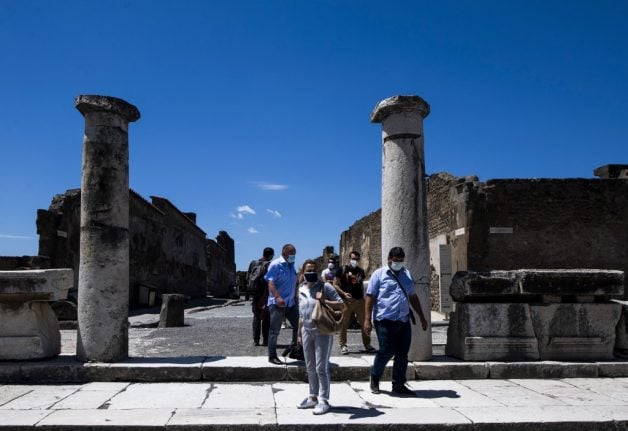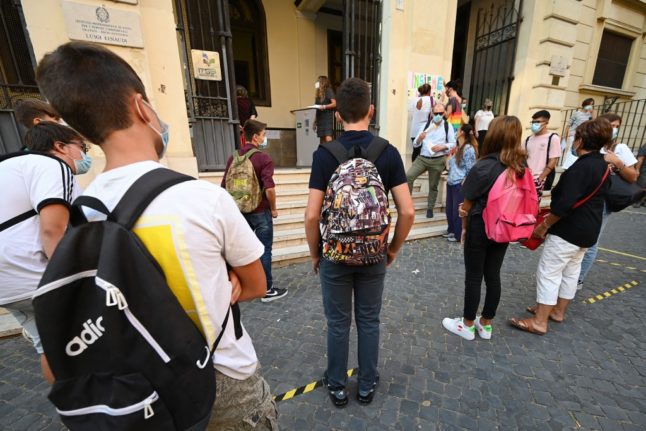With travel still heavily restricted until June 3rd, for now Italy's sights will only be accessible to local residents.
READ ALSO: Who is allowed to travel to Italy from June 3rd?
From Monday, Rome's Colosseum and Vatican Museums reopen to the public, and a major exhibition marking the 500th anniversary of the death of the Renaissance painter Raphael also reopens at Rome's Le Scuderie del Quirinale.
Florence’s Uffizi Gallery is set to reopen on June 3rd, and its Accademia Gallery, home to Michaeloangelo's David, on June 2nd.
Some of the country's most famous historical sites are already open to visitors.

Florence's Piazza del Duomo and the Santa Maria del Fiore cathedral. Photo: AFP
The Leaning Tower of Pisa reopened on Saturday May 27th, Florence's Palazzo Pitti on Sunday 28th, and the Pompeii archaeological park last Tuesday, May 23rd.
Paestum, the ancient Greek archaeological site near Naples, was the first to reopen – on May 18th, with temperature checks at the entrance and other health measures implemented around the site.
The site's management, which has also tightly restricted visitor numbers, said the new system could be a model for a new kind of “slow tourism” in future.
All tourist sites have strict safety measures in place after reopening.
Visitors to the Colosseum will have to buy advance tickets online, wear face masks, and have their temperature taken at the entrance.
The Leaning Tower of Pisa is only allowing 15 visitors at a time, who must wear face masks and an electronic device that warns them if they're within a metre of anyone else.
Florence's Duomo, which reopened on May 22nd, has introduced social-distancing necklaces for visitors which vibrate when wearers get too close to one another, while the Accademia Gallery is trialling a Bluetooth app which vibrates to alert you to other people nearby.
All attractions either require or recommend online booking in advance, with visitors numbers strictly limited.
READ ALSO:
- When can I travel to my second home in Italy?
- 'Without tourists, Venice is a dead city': Not all Venetians are glad the crowds have gone
- Why the Italian government might give you up to €500 to go on holiday in Italy
For now, Italy's historical and cultural sites can only be enjoyed by local residents as restrictions on interregional travel remain in place until June 3rd.
Italy is also preparing to allow in tourists from the EU and UK from that date.
However, some EU countries including Switzerland are warning their citizens against “premature” travel to Italy, and could bar Italians from visiting amid concerns about the country's coronavrus infection rate.



 Please whitelist us to continue reading.
Please whitelist us to continue reading.
“The new system could be a model for a new kind of slow tourism in the future.” If this is the new ‘model’, then Italy can kiss their tourist industry goodbye! To think that this is the ONLY way tour operators and government officials can devise to restrict the number of tourists is outrageous! Mask and this social distancing nonsense was meant to be in place to ‘flatten’ the curve, but if authorities now think they are going to make this a normal requirement, they are sadly mistaken. After 9/11, instead of figuring out how to make air travel safe, 19 years later we are all suspected criminals who require body scans everytime we fly. Thanks, but no thanks….